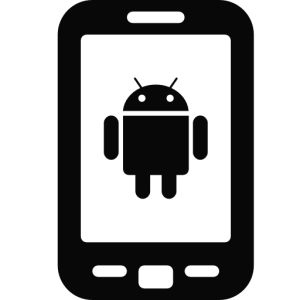Does your mobile phone provide better quality than a typical webcam? I'll test some virtual webcam software for mobile.
Mobile WebRTC will be better than VoLTE
 Most WebRTC demos focus on desktop video applications, this flies in the face that the world is/has and will be moving their screen hours to mobile. If you’re talking about WebRTC and not talking about mobile, you’re not talking to me.
Most WebRTC demos focus on desktop video applications, this flies in the face that the world is/has and will be moving their screen hours to mobile. If you’re talking about WebRTC and not talking about mobile, you’re not talking to me.
For sometime Google has been quietly working away at reducing the call set-up times for WebRTC. In fact, Google has a more wider initiative to reduce the time anything takes on mobile. Every 100 milliseconds counts. Thus tongues started wagging and tweets started flying when Serge Lachapelle, Google’s product manager for WebRTC, commented at the recent London Kranky Geek event that the WebRTC team was working to make a WebRTC call setup faster than a similar VoLTE call (despite the hype, real network experience is that a VoLTE call takes ~2.5 seconds to establish, which is indeed faster than the typical ~8 seconds for a 3G call). WebRTC could easily be a fraction of this.
In addition, Google is working to improve echo cancellation and noise reduction and intelligently disable or ignore mobile hardware capabilities as needed (to prevent conflict). Getting voice right is painstaking because you only notice it when it’s bad. Note how badly Whatsapp implemented their initial version of voice (big echo problems and not WebRTC based).
Many are trying to explain to me how unlikely it is for voice to be carried in a quality manner over the mobile data network. These same people look awfully a lot like those who were telling me 10 years ago that there was no way you could run voice in a quality fashion over the public Internet. Mobile data networks are getting faster and more reliable every day. The PSTN is dying daily, move on.
The dominoes are falling into place. Android today has a place holder in the contact manager for “Internet Telephone” today’s it’s for a SIP URL, but this could just as easily be a WebRTC URL. Google has announced Project Fi, a data driven mobile service with voice nearly an afterthought. Mobile data networks are beefing up.
Apple, with over 1 billion devices activated, clearly helped in the destruction of SMS with their Facetime service and Google Android really doesn’t have a corresponding offering. Hangouts is too heavy and similar to Facetime too video centric. The question is there a new service in the making for Google Android?
The federated pundits are gleeful in anticipation as Android surely won’t launch a closed application like Apple. However, WebRTC has very lightweight signaling requirements and it easy enough to create a WebRTC call with nothing more than a standard WWW URL and some dynamic DNS capabilities attached to your own domain name. Isn’t Google selling domain names now? Another domino falls.
Simple voice calling isn’t all that exciting and with already low telephone rates, cost savings simply isn’t a motivator. VoLTE promises nearly nothing in terms of new capabilities. However, a WebRTC mobile experience could easily provide unique personalization (think custom wallpapers, emoji symbols, cute little tones, dancing bears – silly things that have spawned billion dollar businesses) but as well business application as well. The key here is to be open and to be flexible.
The forward focus on WebRTC must be mobile centric.